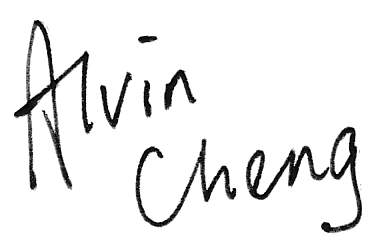On Obsidian — am I designing a pilot dashboard?
When Obsidian launched v1.9.12 in August which has significantly improved its mobile experience, I gave it a try again.
Yes, it’s not the first time I downloaded Obsidian, but I always gave up because it was an application mainly for desktop. Clunky on my phone.
Although the app is based on Electrons, which is easier for building in all platforms, the experience is not bad at least on iPhone, iPad and MacBook Air (Intel).
I like Obsidian which consists of plain text files while maintaining WYSIWYG editing experience, with different features helping users manage their knowledges in daily life and work, like backlinks, tabs, outlines, graph view to show connections of knowledge that I have…
But, so what?
But what will I get when I see the above graph view? Will I be able to say how knowledges are related after reading the graph, or will I end up having an illusion of being more knowledgeable, instead of understanding myself and the world better? More importantly, am I building and configuring a dashboard for my plane, instead of a better, happier self?
Under the interface with a lot of features and configuration, almost every time I need to google how to do the same thing as what other apps can do, and how to use existing features Obsidian uniquely provides. My questions are,
It's a waste of time because I need to search for the ways in how to deal with
No doubt the app is powerful, but does that mean I will become more powerful? More powerful in what? Future proofing a tool for myself or having a better self?
Materialization of knowledge
Note taking or knowledge management apps are always attractive thanks to their user interface contributing to a sense of illusion that I can own something. The reality is learning through writing and linking is always a process, never an end. We need to keep all these documents simply because we may need to revise the content someday.
On Obsidian, you will see the (beautiful) structure of your system, with notes having their location, outgoing links and backlinks as well as outlines shown on the right hand side of your note, showcasing how your thinking is structural. I can also refer to the graph view.
It looks like knowledge has its own units. I mean knowledge is not countable, but we make it like Chemistry, from an atom to element to compound. An atom can be the bullet point form in a note, while an element can be a header and a note is a compound. Sounds like interesting metaphor for knowledge, but in fact knowledge is more complicated (imaginative) than we think. Visualisation is a great thing but it's just one of the ways to learn.
Learning as a process
In other words, when we think writing is a way to record so that we can check again, it is also a process to help us understand and remember something better. As there are still chances for us to forget and misunderstand the knowledges, we need to keep those files to follow up someday.
But does that mean we need to store and control our data permanently? What will we gain if we can look back and update our half-century-old note? What will we lose if we can't?
Life is not based on a foundation, but sustainable personal growth
Obsidian will definitely make users commit to it for learning, writing, and even everything in their daily life, due to the configuration and useful features. It's definitely not an application for users to save time, but make time to enrich themselves. The user interface will remind every user of building a good strong foundation within a piece of software which can lead to a beginning of our better life.
We may not be aware of this establishment of the belief in causality, and we may increasingly believe a more powerful tool is a game changer. Say picking up a professional writing app will make us write more, but it doesn't help us look for ideas and make us more concentrated on writing. Many well-known writers still simply write on paper notebooks, and if they need to type, they still use basic word processors like Google Doc instead of Ulysses or Scrivener. Don't get me wrong as I am not opposing more professional software, but when you are looking at more and more people, many ways of doing can work really well.
Life is like a flow that there is no so-called golden hours or hard times to determine our future — that we just need to keep walking, doing something and see. There is no such thing called silver bullet. Try to fix if we face problems, and we will grow. We cannot predict which tools or paths will bring us seamless success.
Don't forget we are the subject in our life, not the tools or the infrastructure in your device. Always let the tools do for you and not you work for tools. We can be wonderful even though our apps are not.
Will I switch to Obsidian? I don't know at this moment, but let's see.


